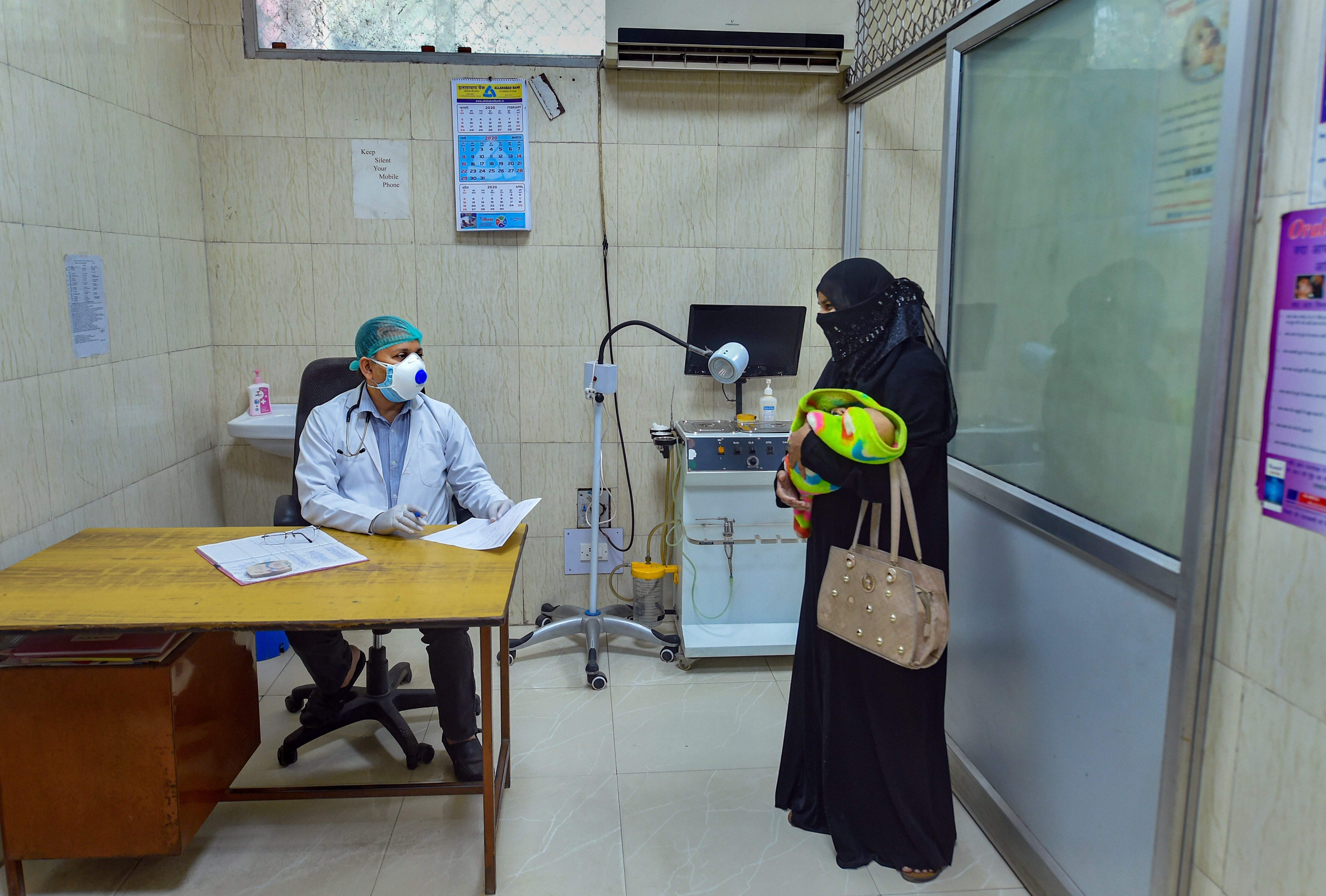Sumit Mukherjee, 63, is an invisible victim of the coronavirus. On the evening of April 28, Mukherjee, my former colleague and friend, complained of breathlessness and uneasiness in the chest. He had been suffering from ischaemic heart disease for some time. A doctor was summoned to his house; he suggested Mukherjee get an echocardiograph done.
But this was a time when the coronavirus was raging through Calcutta. Most hospitals were not ready to admit patients suffering from breathlessness or fever. His friends and relatives rushed him to a big private hospital on the EM Bypass where they managed to get him admitted. An echocardiograph was done and, along with it, his swab was sent for a Covid test.
The echo results were far from satisfactory. He needed more tests and, possibly, surgery. But the hospital authorities informed them that no procedures would be initiated until the result of the Covid test — the waiting period was 24 hours — came. Mukherjee’s condition deteriorated; he had to be wheeled into the intensive care unit.
The pandemic has shaken the base of our already wobbly healthcare system, denying people such as Mukherjee and other patients of heart diseases, kidney ailments, cancer and tuberculosis of the care they deserve.
In the wee hours of April 30, Mukherjee passed away. A little later, the Covid test result arrived. It was negative.
“The pandemic expedited his death,” says Mukherjee’s relation who doesn’t want to be named. “He may not have died untreated if it were not the time of coronavirus,” he said.
People such as Mukherjee are dying not because of Covid but because the healthcare system has been unsettled and cracked open by the virus. Confused and scared, many hospitals have refused patients. And even if patients managed to get admission, these hapless people may have suffered the fate of Mukherjee. On top of that, outpatient departments and operating rooms of hospitals have been turned into intensive care units catering only to Covid patients. Beds, blood, doctor, nurses and ventilators are in short supply. Even if there is room for other patients, hospitals, nursing homes and doctors’ private clinics deny them entry for fear of being infected. Patients and their family members too are afraid to visit hospitals, even if they are sick.
“I am not sure what happened to your colleague but, in the initial stages of the epidemic, many doctors were indeed shaky about encountering asymptomatic Covid patients,” says Dr Subarna Goswami, a doctor attached to a state government hospital in Alipurduar in north Bengal. Since Mukherjee was breathless, they might have thought he had contracted the virus. Breathlessness is one of the key symptoms of Covid. “But they should have never delayed critical care,” he says. According to Dr Goswami, doctors were initially scared because of the absence of proper protective gear and testing kits. But that problem was solved within a couple of weeks.
Early on, as the epidemic loomed, many hospitals started halting elective surgeries and admitting patients. Knee replacements, kidney stone removals and most hernia surgeries were cancelled. Routine check-ups were deferred.
But some conditions are too risky to be postponed. While they may not be emergencies, many of these illnesses could become life threatening. If not treated in time, they could leave the patient with permanent disability and even hasten death. Doctors and patients alike are confronted with a worrisome future: how long is too long to postpone medical care?
Delaying treatment is especially dangerous for people with cancer, for early diagnosis and quick treatment are the hallmark of cancer therapy. Postponement can mean a death warrant for a large number of patients undergoing radiotherapy or chemotherapy. The same holds true for patients who are living with an imminent cardiac arrest.
“I have been wondering how big a monster the coronavirus is,” says Dr Kunal Sarkar, a senior cardiac surgeon in Calcutta. “We understand that patients with Covid are the priority. This virus is vicious and we still don’t have any solution for it. But somebody who has suffered a cardiac attack can also die.” According to him, nearly 30,000 people die every day across the country. “About 9,000 of these are due to cardiovascular diseases. People are still having heart attacks, people are still having cerebral strokes,” he adds. As simple and essential services for most prevalent ailments have vanished, the coronavirus may be responsible for the deaths of many more who are not even infected by depriving them of the desperately-needed treatment or even basic care. “We don’t have any idea of the figures related to infant mortality or maternal mortality in the country in the past two months,” rues Dr Sarkar.
Dr Amitabha Nandy, director of the Centre for Studying Infectious Diseases and Epidemics in Calcutta, says, “The focus on Covid-19 patients seems to have led to the of those affected by other diseases. Patients of cardiovascular diseases, kidney ailments, diabetes and tuberculosis have missed their treatments as hospitals got busy handling Covid-19. Many of them may have even died without the required treatment.”
This need not have happened if all concerned had utilised the initial period of the lockdown to make proper provisions for Covid and non-Covid patients in an organised manner, he says. “We had enough time to prepare our healthcare system at both the national and regional levels so that people suffering from other diseases could have received the deserved care,” Dr Nandy adds.
There are many more hidden victims of the pandemic, such as Mukherjee, sick or dead, but not from the coronavirus.










